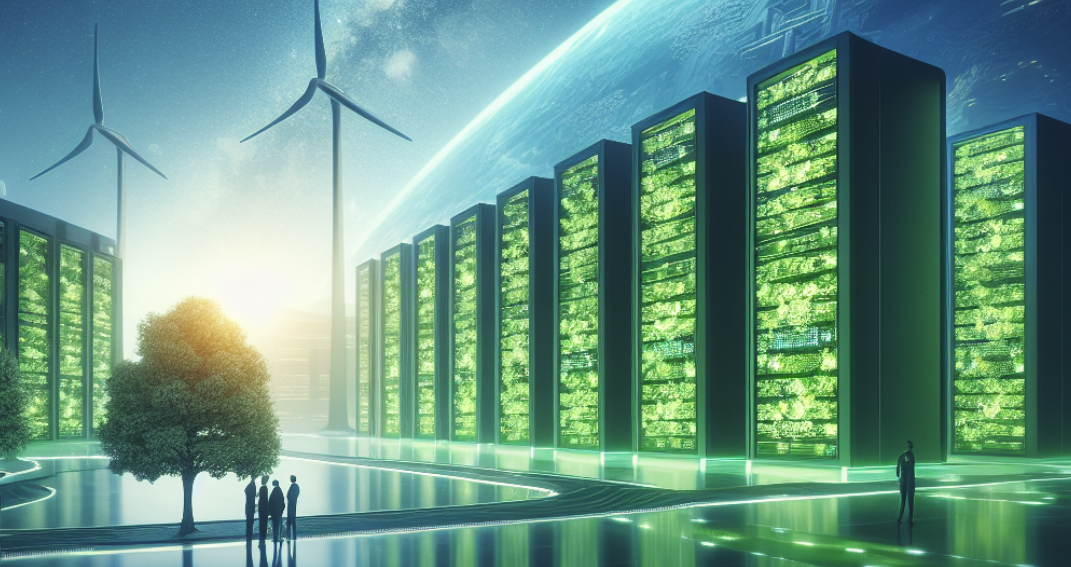Hydrogen fuel cells are emerging as a sustainable and efficient solution for data center backup power. With the rising demand for energy-efficient operations and reduced carbon emissions, this clean technology provides a reliable alternative to traditional diesel generators. In Indonesia, where data centers operate 24/7, implementing hydrogen fuel cells as a backup source is becoming increasingly important.
What Are Hydrogen Fuel Cells and How Do They Work?
Hydrogen fuel cells produce electricity by combining hydrogen and oxygen, with only water and heat as byproducts. Unlike diesel generators, which emit harmful pollutants, hydrogen fuel cells offer a zero-emission alternative, making them a crucial component of environmentally friendly data center infrastructure.
For data centers, hydrogen fuel cells ensure uninterrupted power during outages by providing clean, reliable backup energy. This guarantees continuous operation of critical hardware, making it an ideal solution for maintaining data center uptime.
Key Benefits of Hydrogen Fuel Cells for Data Centers
- Environmentally Friendly
Hydrogen fuel cells generate power without emitting carbon, a vital step toward reducing the environmental impact of data centers. In an age where businesses globally prioritize sustainability, hydrogen fuel cells help data centers reduce their carbon footprints and contribute to cleaner operations. - Energy Efficiency
Hydrogen fuel cells are more efficient than traditional diesel generators. By generating cleaner energy with higher efficiency, data centers can reduce operational costs related to energy consumption and minimize equipment maintenance. - Quiet Operation
Hydrogen fuel cells operate silently, making them ideal for data centers located in noise-sensitive areas. Unlike diesel generators, which produce significant noise pollution, hydrogen fuel cells run quietly without disrupting operations. - Reduced Reliance on Fossil Fuels
Hydrogen is one of the most abundant elements on Earth, offering a renewable and sustainable backup energy source. By using hydrogen fuel cells, data centers can reduce their reliance on non-renewable fossil fuels, creating a more sustainable energy strategy for the future.
Challenges in Adopting Hydrogen Fuel Cells in Data Centers
Despite their benefits, hydrogen fuel cells face some challenges in data center applications. The initial cost of installation and the infrastructure required for hydrogen fuel cells are higher than traditional systems. However, as technology advances, these costs are expected to decrease over time, making hydrogen fuel cells more accessible for widespread adoption.
Another challenge is the availability of renewable hydrogen. For hydrogen fuel cells to be fully sustainable, the hydrogen must be produced using renewable energy sources rather than fossil fuel-based methods.
The Role of Distributor UPS Data Center in Hydrogen Fuel Cell Integration
In Indonesia, Distributor UPS Data Center plays a key role in supporting the integration of hydrogen fuel cells for data center backup power. These distributors help data centers select, install, and maintain hydrogen fuel cell systems, ensuring optimal performance and reliable backup energy during outages.
Distributors provide technical support, including system design, installation, and maintenance, to ensure that hydrogen fuel cells are seamlessly integrated into existing infrastructure. This partnership helps data centers achieve both energy efficiency and sustainability goals.
Steps for Implementing Hydrogen Fuel Cells in Data Centers
- Assess Energy Needs
The first step is evaluating the data center’s energy requirements, particularly during power outages. This involves assessing the load and determining the appropriate number of hydrogen fuel cells to meet backup power demands. - Collaborate with a Trusted Distributor UPS Data Center
Working with an experienced distributor ensures successful integration. A knowledgeable distributor helps design and implement an efficient system that supports data center operations without compromising performance. - Ongoing Maintenance and Monitoring
After installation, ongoing maintenance is crucial to ensuring that hydrogen fuel cells operate effectively. A reliable distributor provides regular maintenance services, including system checks, part replacements, and performance monitoring, to keep the fuel cells functioning optimally.
Conclusion: A Sustainable Future for Data Centers with Hydrogen Fuel Cells
The adoption of hydrogen fuel cells for backup power in data centers represents a significant step toward a sustainable and energy-efficient future. By using this clean technology, data centers can reduce their carbon emissions, improve operational efficiency, and contribute to global sustainability efforts. The role of Distributor UPS Data Center is essential in helping data centers adopt this technology and ensure long-term operational success.
At Climanusa, we recognize the importance of transitioning to sustainable energy solutions for data centers. As a leading Distributor UPS Data Center in Indonesia, we offer innovative solutions like hydrogen fuel cells to support your data center’s clean energy needs. With advanced technology and comprehensive support, Climanusa is your trusted partner in achieving efficient and environmentally friendly operations.
For more information, please click here.
–A.M.G–

